 Carter Horsley
Carter HorsleyDec 23, 2011
Carter's Review
The Greenwich Street Project renovation and expansion in 2004 of a small, former industrial loft building at 497 Greenwich Street in SoHo into 23 luxury residential condominiums is one of the most spectacular modest-size projects in the city in decades.
It is all the more exciting because it is tucked away in a mid-block location in what has become informally known as "Hudson Square," the former hub of Manhattan's commercial printing district, which sits alongside the Hudson River between TriBeCa and the village. It's not too far away from an architecturally ancestor, the dramatically curved façade of the Shaare Zedek Synagogue at 47 White Street that was designed in 1967 by William Breger.
Winka Dubbeldam, the principal of Archi-Tectonics, is the architect of the 11-story building and she is also an adjunct assistor professor of architecture at Columbia University.
Bottom Line
A slick, crinkled, modern building with tiny parapets that hugs to an adjacent older structure, this is one of the most desirable buildings in SoHo.
Description
Where the north side of the older structure meets the new construction are six small protruding white parapets, or small balconies, that serve as a "crease." These parapets conjure hooks, or a zipper, or an oceanliner lookout.
This site, of course, is only a block or so away from the Hudson River. There is a four story glass penthouse unit in the modern tower that wraps around the original warehouse building, which features unobstructed river views.
It is remarkable that this project incorporated the existing façade of the older building and one could argue that such a noble gesture in this case was not necessary as one wants more of the sensational glass "modern" façade. Indeed, the glass façade treatment here should probably have been used for the "new" Museum of Modern Art on West 53rd Street that is due to reopen in late 2004.
It has an exposed rooftop watertank.
Amenities
This project has a multi-level fitness center with an endless pool, sauna and showers; "white-glove" storage; a wine cellar; a private landscaped garden; a media screening room and a duplex guest apartment.
It has no sun deck and no garage and is near the Holland Tunnel.
Apartments
Apartment 2A has a 30-foot-long foyer leads into a 25-foot-long dining room with an open 16-foot-long kitchen with an island adjacent to a small balcony. The apartment also has a 25-foot-long living room, a 10-foot-long home office and a 23-foot-long master bedroom with a 24-foot-long balcony at the rear of the building and a second bedroom.
Apartment 3C is a one-bedroom unit that has a 8-foot-long foyer that opens into a 28-foot-wide living room with a 11-foot-wide open kitchen with an island and a 12-foot-square dining area. A 26-foot-long master bedroom with a long sliding door adjoins the living room.
Apartment 6D is a two-bedroom unit that has a foyer that leads to a 25-foot-wide living room with an open kitchen with an island. It has an angled 24-foot-long balcony at the rear of the building.
Apartment 7B is a three-bedroom unit that has a 44-foot-long living/dining room with a 20-foot-long open kitchen and a 42-foot-wide terrace. The unit also has a 21-foot-long balcony off one of the bedrooms.
Apartment 7A has a 28-foot-long living room with a small balcony on Greenwich Street that opens onto an 18-foot-long open kitchen with an island and a 16-foot-long dining room. The apartment has three bedrooms and an angled terrace at the rear of the building.
History
Manhattan is forested to a very great extent with rectilinear structures with the obvious and rare exceptions of the upside-down cone of the Solomon R. Guggenheim Museum and the Flatiron Building, both on Fifth Avenue, at 88th and 23rd Streets, respectively.
The Austrian Cultural Building on East 53rd Street and the LVMH Building on East 57th Street, both between Fifth and Madison Avenues, are also important exceptions as they emphasis their angularity.
This building is perhaps the first to be completed in the city to manifest the sensuous complex and rippling geometries that were made famous by Frank O. Gehry s Guggenheim Museum in Bilbao, Spain. Gehry designed another titanium-clad, sail-like monumental structure for the Guggenheim Museum for a site along the East River south of the South Street Seaport but that plan was abandoned because of funding problems. He did, however, finally designed two sinuous buildings in Manhattan, the very tall rental apartment tower at 8 Spruce Street that is known as New York by Gehry, and the IAC Center, an office building on West Street in Chelsea that is notable for its sail-like form.
Unlike Gehry's shiny metallic façades, this Greenwich Street Project building's uses blue-tinted glass to cover its new portions and it cascades down from its setback upper floors, which extend over the 6-story, older structure. The new glass tower is a full 11-stories high and features three lower floors of flat glass curtains, with the remaining "crinkled" stories featuring dramatic asymmetric curves.
Location
The 23-unit development, which is known as The Greenwich Street Project, is located between Spring and Canal Street close to the Holland Tunnel. It is immediately south of another luxury condominium apartment project at 505 Greenwich Street on the southeast corner of Spring Street that also happened to be built at about the same time and also sports a sleek glass façade. The handsome building at 505 Greenwich is taller and larger and rectilinear and looks more like a modern office building than an apartment house.
It is also interesting to note that the building to the south of this on the same block has been nicely renovated with some modern touches at the Canal Street corner and that another small building on the same block but on the other side of Greenwich Street has been remodeled with a very handsome multi-paned fenestration. As a result, this block is one of the most interesting in the city.
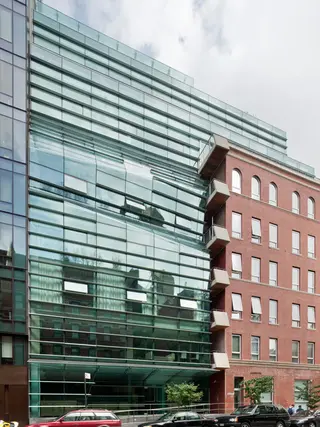
- Condo built in 2003
- 1 apartment currently for sale ($3.2M)
- 1 apartment currently for rent ($14K)
- Located in SoHo
- 24 total apartments 24 total apartments
- 10 recent sales ($1.9M to $9.5M)
- Doorman
- Pets Allowed


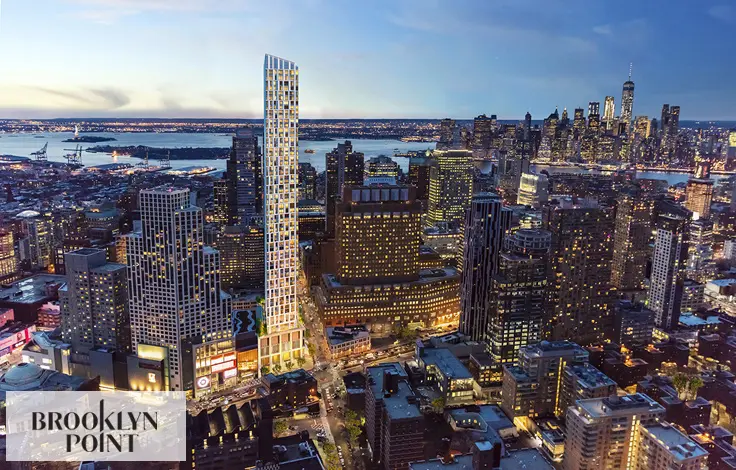
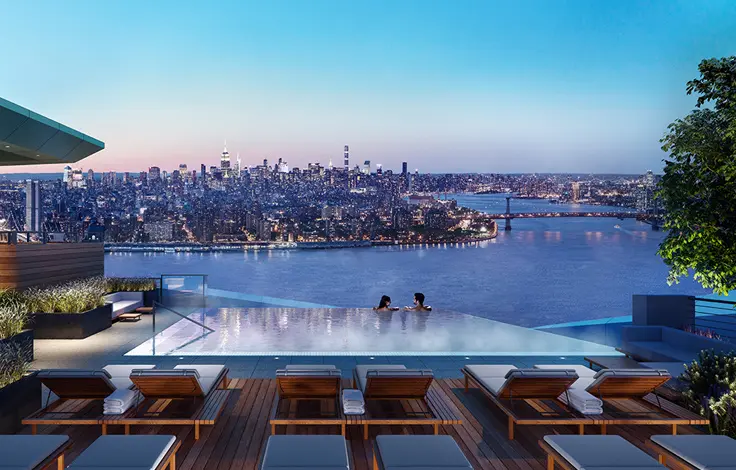
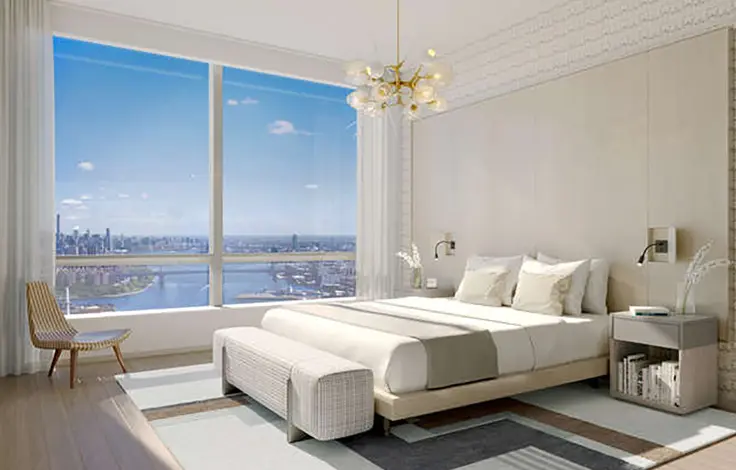
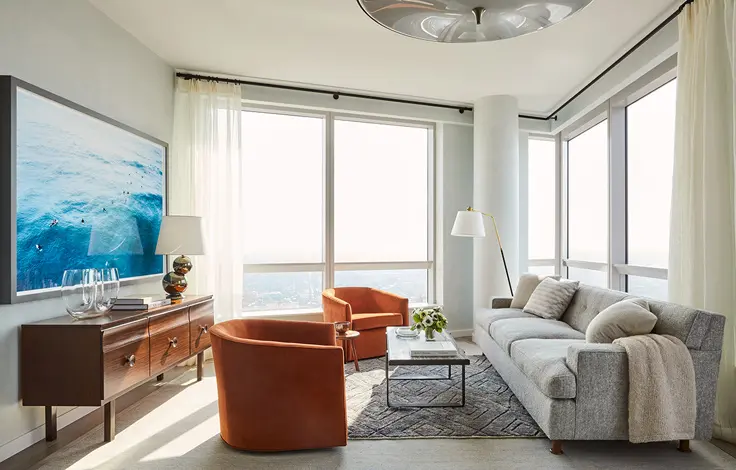
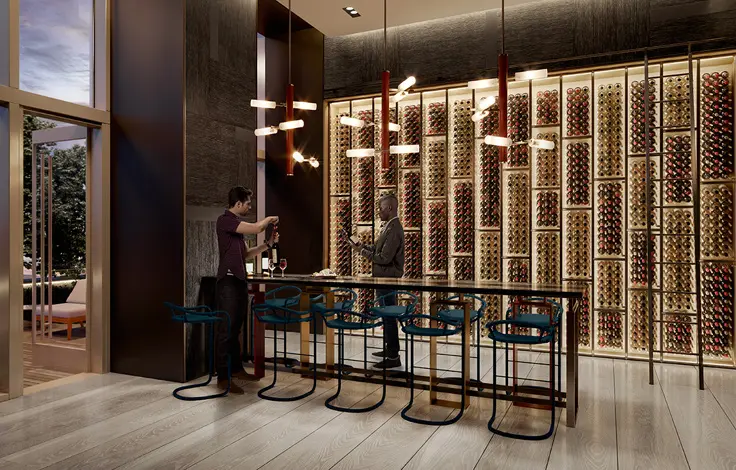
 6sqft delivers the latest on real estate, architecture, and design, straight from New York City.
6sqft delivers the latest on real estate, architecture, and design, straight from New York City.
